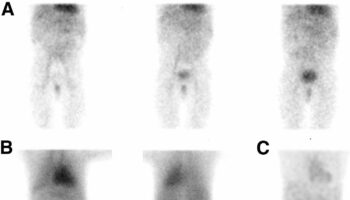Contents
What is dextran
Dextran (Dextran 40, Dextran 60, Dextran 70) is a group of glucose polymers made by Leuconostoc mesenteroides bacteria 1. Dextrans are used therapeutically as plasma volume expanders and anticoagulants 2. Dextrans are also commonly used in biological experimentation and in industry for a wide variety of purposes.
Dextrans are classified according to their average molecular weight 1. High molecular weight Dextrans were originally developed for the treatment of different hypovolemic states 3. Dextran compounds have been shown to maintain the colloidal osmotic pressure, thereby improving vital organ perfusion and increasing heart filling as well as cardiac output 4. During recent years, low molecular weight Dextrans, like Dextran 40, have been used increasingly due to their reduced risk of side-effects such as hemorrhage or allergic responses 2. Low molecular weight Dextrans have also been used as anti-thrombotic agents to prevent deep vein thrombosis 3. In addition, Dextrans have been demonstrated in organ perfusion experiments to influence the binding of leucocytes to microvascular endothelium in vivo 5, but little is known about the mechanisms involved.
Dextran injectable solutions:
- Dextran 6% (Dextran 70)
- Dextran 10% (Dextran 40)
Shock
- No more than 20 mL/kg IV during first 24 hours; THEN 10 mL/kg/day
- Same mL dosage for both 10% & 6%
Dextran 10% (Dextran 40) solution
- No more than 5 days
- First 500 mL infused rapidly, then slow infusion
Surgery (DVT/PE Prophylaxis)
- Dextran 10% (Dextran 40) solution: 500-1000 mL (~10 mL/kg) on day of surgery; THEN 500 mL/day for 2-3 days; THEN 500 mL q2-3Days PRN up to 2 weeks
Dextran 6% (Dextran 70) solution: Not approved but used
- Priming Fluid in Pump Oxygenators, Uterine Cavity Distention
- Add 10-20 mL/kg (or 1-2 g/kg); not to exceed 20 mL/kg (2g/kg); dose varies with volume of pump oxygenator
Dextran mechanism of action
- Branched polysaccharide volume expander through highly colloidal starch structure; lowers platelet and red blood cell adhesiveness
Dextran pharmacokinetics
- Elimination half-life: 40 min
- Duration: 3-4hr (plasma expanding effects)
- Distribution half-life: 12 min
- Vd: 6.5 L
- Metabolism: Minimally in tissues; liver, kidney, spleen
- Excretion: urine 75%
Dextran special precautions
Contraindications:
- Hypersensitivity to dextran or corn products
- Pulmonary edema, severe bleeding disorders, severe congestive heart failure, severe oliguria/anuria due to renal disease, significant hemostatic defects, cardiac decompensation
Dextran 10% (Dextran 40):
- Marked thrombocytopenia or hypofibrinogenemia
Dextran Cautions
- Decreased urinary output 2nd to shock, bowel surgery, dehydration, active hemorrhage, hypernatremia, pathological abdominal conditions, thrombocytopenia
- Monitor urinary output
- Contains no preservatives, discard unused portions
Dextran side effects
- Congestive heart failure
- Mild hypotension
- Tightness of chest
- Thrombocytopenia
- Anaphylaxis
- Injection site infection/phlebitis
- Acute renal failure
- Acidosis (if NaCl soln used)
- Pulmonary edema
- Wheezing
Iron dextran injection
Iron dextran injection is used to treat iron-deficiency anemia (a lower than normal number of red blood cells due to too little iron) in people who cannot be treated with iron supplements taken by mouth. Iron dextran injection is in a class of medications called iron replacement products. Iron dextran injection works by replenishing iron stores so that the body can make more red blood cells.
Iron dextran injection comes as a solution (liquid) to inject into the muscles of the buttocks or intravenously (into a vein) by a doctor or nurse in a medical facility. Your doctor will determine how often you receive iron dextran injection and your total number of doses based on your weight, medical condition, and how well you respond to the medication. If your iron levels become low after you finish your treatment, your doctor may prescribe this medication again.
You may experience a delayed reaction to iron dextran injection, beginning 24 to 48 hours after receiving a dose of medication and lasting for approximately 3 to 4 days. Tell your doctor if you experience any of the following symptoms: joint, back, or muscle pain; chills; dizziness; fever; headache; nausea; vomiting; or weakness.
Iron dextran injection may cause severe or life-threatening reactions while you receive the medication. You will receive this medication in a medical facility and your doctor will watch you carefully during each dose of iron dextran injection. Tell your doctor if you experience any of the following symptoms during or after your injection: shortness of breath; difficulty swallowing or breathing; wheezing; hoarseness; swelling of the face, throat, tongue, lips, or eyes; hives; itching; rash; fainting; lightheadedness; dizziness; bluish discoloration of the skin, lips, fingers, or toes; cold, clammy skin; rapid, weak pulse; slow or irregular heartbeat; confusion; loss of consciousness; or seizures. If you experience a severe reaction, your doctor will slow or stop your infusion immediately and provide emergency medical treatment.
Before you receive your first dose of iron dextran injection, your doctor will give you a test dose of medication and watch you carefully for at least 1 hour for any signs of an allergic reaction. However, you should know that it is still possible that you may experience a severe or fatal allergic reactions even if you tolerate the test dose.
Tell your doctor if you have asthma or a history of an allergic reaction to any medication. Also tell your doctor if you are taking an angiotensin-converting enzyme (ACE) inhibitor such as benazepril (Lotensin), captopril (Capoten), enalapril (Vasotec), fosinopril, lisinopril (Prinivil, Zestril), moexipril (Univasc), perindopril (Aceon), quinapril (Accupril), ramipril (Altace), or trandolapril (Mavik). You may be at a higher risk of having an allergic reaction to iron dextran injection.
You should only receive iron dextran injection if you have a condition that cannot be treated with iron supplements that are taken by mouth.
What should I do if I forget a dose?
If you miss an appointment to receive iron dextran injection, call your doctor as soon as possible.
Iron dextran injection special precautions
Before receiving iron dextran injection:
- tell your doctor and pharmacist if you are allergic to iron dextran injection; any other iron injections such as ferric carboxymaltose (Injectafer), ferumoxytol (Feraheme), iron sucrose (Venofer), or sodium ferric gluconate (Ferrlecit);any other medications; or any of the ingredients in iron dextran injection. Ask your pharmacist for a list of the ingredients.
- tell your doctor and pharmacist what other prescription and nonprescription medications, vitamins, nutritional supplements, and herbal products you are taking or plan to take. Be sure to mention the medications listed in the IMPORTANT WARNING section and iron supplements that are taken by mouth. Your doctor may need to change the doses of your medications or monitor you carefully for side effects.
- tell your doctor if you have a kidney infection and if you have or have ever had rheumatoid arthritis (RA; a condition in which the body attacks its own joints, causing pain, swelling, and loss of function) or heart or liver disease.
- tell your doctor if you are pregnant, plan to become pregnant, or are breast-feeding. If you become pregnant while receiving iron dextran injection, call your doctor.
Iron dextran injection side effects
Iron dextran injection may cause side effects. Tell your doctor if any of these symptoms are severe or do not go away:
- soreness, swelling, or weakness in the area where the medication was injected
- brown skin discoloration
- numbness, burning, or tingling in the arms, hands, feet, or legs
- sweating
- changes in taste
Some side effects can be serious. If you experience these symptoms or those listed in the IMPORTANT WARNING section, call your doctor immediately or get emergency medical treatment:
- chest pain or tightness
- blood in the urine
Iron dextran injection may cause other side effects. Call your doctor if you have any unusual problems while taking iron dextran injection.
- Synthetic plasma volume expanders–their pharmacology, safety and clinical efficacy. Mishler JM 4th. Clin Haematol. 1984 Feb; 13(1):75-92. https://www.ncbi.nlm.nih.gov/pubmed/6202449[↩][↩]
- Termeer CC, Weiss JM, Schöpf E, Vanscheidt W, Simon JC. The low molecular weight Dextran 40 inhibits the adhesion of T lymphocytes to endothelial cells. Clin Exp Immunol. 1998;114(3):422–426. doi:10.1046/j.1365-2249.1998.00729.x https://www.ncbi.nlm.nih.gov/pmc/articles/PMC1905124[↩][↩]
- Klotz U, Kroemer H. Clinical pharmacokinetic considerations in the use of plasma expanders. Clin Pharmacokin. 1987;12:123–35.[↩][↩]
- Schwarz JA, Koch W, Bühler V, Kaumeier K. Pharmacokinetics of low molecular dextran (Dx1) in volunteers. Int J Clin Pharmacol. 1981;19:358–67[↩]
- Menger DM, Thierjung C, Hammersen F, Messmer K. Dextran versus Hydroxyethylstarch in inhibition of posteschemic leukocyte adherence in striated muscle. Circ Shock. 1993;41:248–55[↩]





